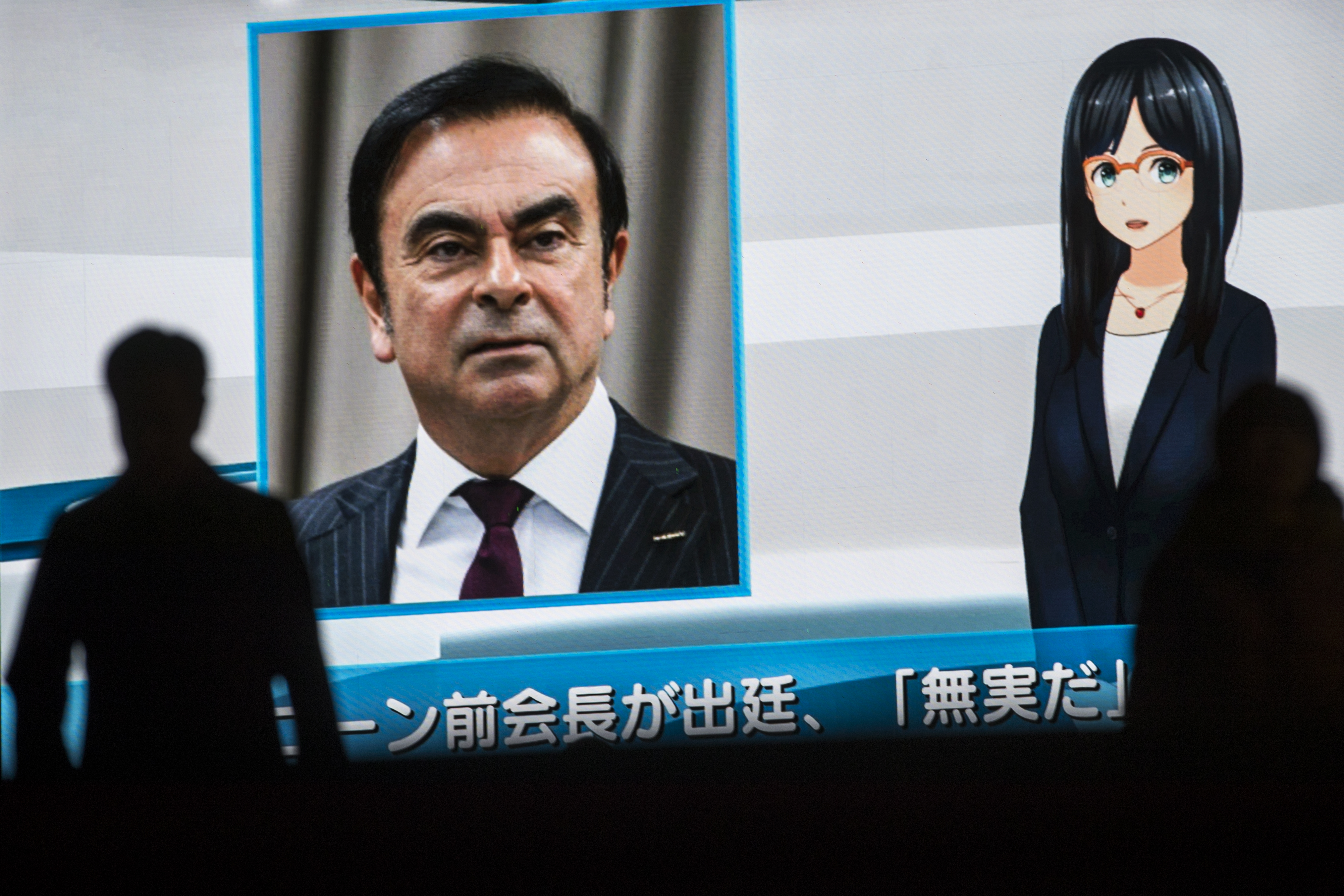Ghosn case rattles Japan’s expat business community
Former Nissan chief Carlos Ghosn is fighting a string of allegations of financial misconduct (Behrouz MEHRI)
Tokyo (AFP) – Carlos Ghosn’s prolonged detention under what critics see as Japan’s opaque and draconian legal system has alarmed foreign executives and sparked questions over the country’s ability to attract overseas talent.
Some in the expat business community believe the French-Brazilian-Lebanese tycoon, the once-revered chairman of Nissan, has been the victim of unfair harshness because he is a foreigner.
“The way Mr. Ghosn is treated seems completely out of proportion compared to the way Japanese executives are treated,” said one Tokyo-based French businessperson, who asked not to be named.
This businessperson pointed to a series of massive accounting scandals at Toshiba during which Japanese executives avoided criminal charges.
In contrast, Ghosn has languished in a Tokyo detention centre for more than 50 days as he fights a string of allegations of financial misconduct. The court has banned his family from visiting, allowing only contact with his lawyers and diplomats.
“It gives the impression of double standards, as if (Ghosn) was being treated this way because he is a foreigner. I do not see how they are going to attract qualified foreigners,” the person told AFP.
“Ghosn was an icon, a symbol of French success and this has poured cold water on quite a few ambitions from young trainees — at least those training for careers in business and management.”
The detained executive was initially kept in a tiny room with Japanese-style tatami for sleeping — sparking outrage from abroad. He has now been moved to a larger room and has a Western-style bed, according to his lawyer Motonari Otsuru.
But even Otsuru has dampened expectations his client could be released any time soon, suggesting it could be six months until a trial and stressing that bail is unlikely in such cases.
– ‘People are worried’ –
Many in Japan have voiced surprise that foreigners have criticised their legal system and prosecutors have reacted angrily, saying they are playing by the rules in place.
“This is a specific case,” said Seiji Nakata, head of Daiwa Securities. “I am in contact with foreign bosses and they have not voiced any pessimism on the subject”.
But Ghosn dominates talk in expat business circles and while foreign investors are not yet rushing to leave Tokyo, the case has worried executives who fear they may unknowingly face legal troubles even if they think they are operating legally.
“Mr. Ghosn’s case has shone a strong spotlight on the opaqueness of Japan’s prosecution system,” said Martin Schulz, economist at the Fujitsu Research Institute in Tokyo.
“This certainly has a negative effect on the ability of companies to attract top talent to Japan,” Schulz told AFP.
As the Ghosn case has laid bare, Japan’s legal system gives enormous power to prosecutors, who nearly always secure guilty verdicts.
Courts routinely allow suspects to be held for questioning for lengthy periods, and many major media outlets are largely supportive of the authorities.
“People are worried. It creates a legal uncertainty on the business conditions in Japan,” said another Tokyo-based source with close ties to foreign firms.
“Seeing how the system works, and how it is orchestrated in the media, creates anxiety among business leaders, an uneasy feeling,” the person said.
Ghosn’s case has also highlighted how the Japanese system differs from western business norms, said corporate compliance lawyer Nobuo Gohara, also a former Tokyo prosecutor.
Gohara noted that Nissan’s sitting Chief Executive Officer Hiroto Saikawa did not give Ghosn the opportunity to defend himself internally to the company’s board.
Instead, the Nissan management conducted an internal probe, sided with prosecutors and swiftly sacked Ghosn after his arrest.
“People see what kind of case this is, and what kind of treatment Mr. Ghosn has received so far,” Gohara told AFP.
“If you were a manager with a very high salary in Japan — and because of your compensation, you might find yourself in a situation like that — I would imagine people with normal, common sense would not want to work in Japan,” he said.
“You would be too scared.”
Disclaimer: This story is published from a syndicated feed. Siliconeer does not assume any liability for the above story. Validity of the above story is for 7 Days from original date of publishing. Content copyright AFP.


